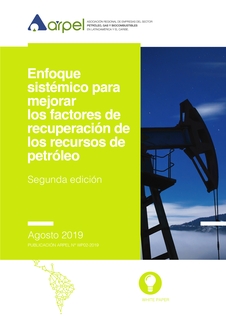In particular, an evaluation was made of the various policies and regulatory options in several producing countries in the world that promote the increase in the recovery factor in mature fields. As explained in the document, despite the incorporation of renewable energy in the energy matrix at a cost competitive with traditional sources, the share of oil and gas is estimated to account for 50 % of the world energy matrix by 2040.
On the other hand, the existing oil and gas fields are being depleted by 6 % per year. “Thus, the industry and states, owners of the hydrocarbon resources, have the challenge and the opportunity to work together to make the necessary investments and meet this growing energy demand in a manner consistent with sustainable development,” the document states.
In 2017, mature fields accounted for approximately 70 % of world oil production; therefore, there is an enormous potential to increase the recovery of currently producing fields.
At the global level, it is estimated that for every 1 % increase in oil recovery from currently operating mature fields two years to the global supply of oil and gas could be added and help meet future demands for energy.
The average recovery factor in oil reservoirs is approximately 30 %; this percentage can be increased up to 40-60 %.
"The improvement of the recovery factor of mature fields is of vital importance for global energy security," as is stated in the document.
The report developed by Arpel (Regional Association of Oil, Gas and Biofuels Sector Companies in Latin America and the Caribbean) contains six chapters: Introduction, Rejuvenation of Mature Fields, Technological Options, Regulatory Alternatives, Operational Aspects, Commercial and Strategic Partnerships, and a section on Conclusions.
